Like this article?
Go on, give it a kudu!
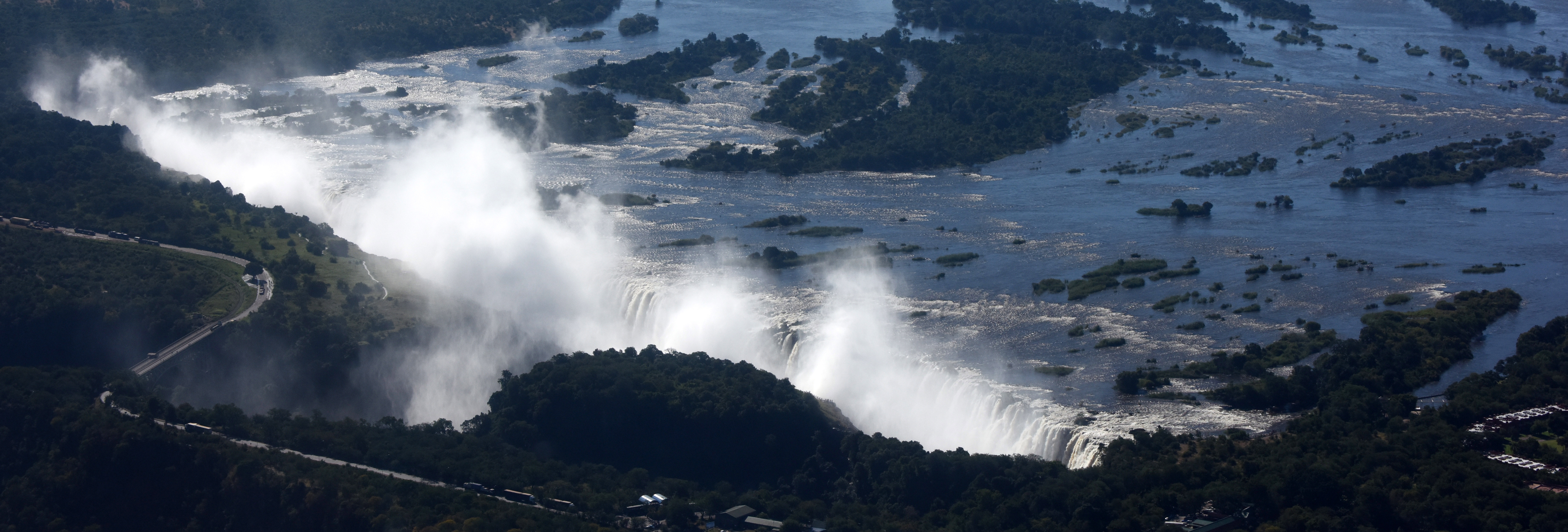
Published on May 18 2017
Written by:
R.W.
1703 views
The biggest reason for going to Livingstone is to visit the Victoria Falls. They are truly impressive and a must-see. In Lozi, one of the local languages, the Falls are called Mosi – oa – Tunya, which means ‘The Smoke that Thunders’. Between January and June, the falls are especially ‘smoky and thundery’.
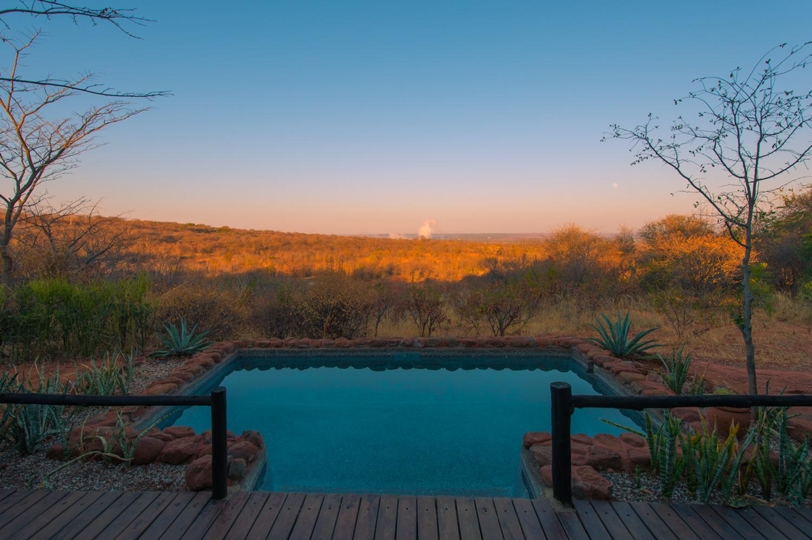
The Zambezi River is getting to its fullest and the heavy rains in most of Southern Africa are making it a particularly impressive sighting this year. In the morning, you can see a huge cloud rising into the air from the chalets at the Stanley Safari Lodge, about 6 km (3.7 miles) away from the falls and overlooking the Zambezi valley. When you open your eyes the cloud of mist is the first thing you can see and you will be blown away. Later in the day, the spray becomes smaller because of the rise in air temperature.
A great way to fully appreciate the masses of water thundering into the gorge is to view them by helicopter. After taking off from its base it first descends right into the Batoka Gorge whizzing past steep walls following the mighty Zambezi. Because of the speed and narrow curves the incline is rather hair-raising. An adrenaline rush is guaranteed! When exiting the gorge, the helicopter nearly touches the trees and then climbs high into the sky as it approaches the powerful Victoria Falls and soars over villages and bushland.
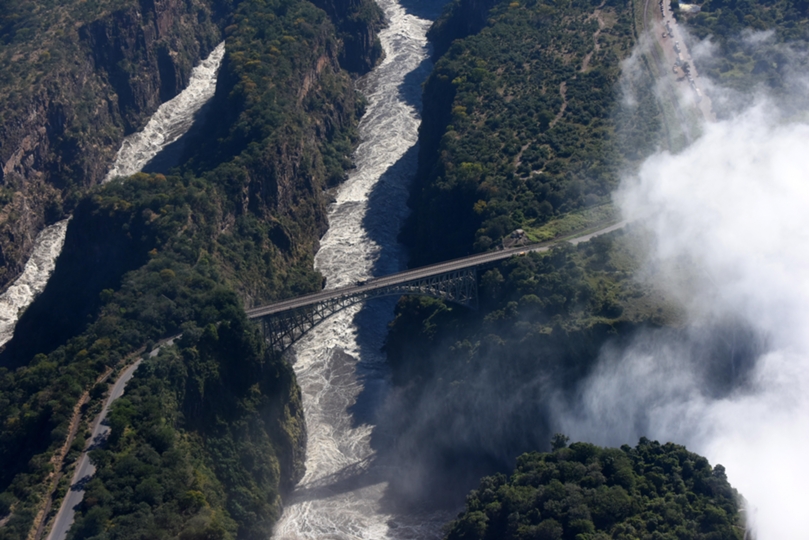
From the air, the Zambezi with all its islands looks absolutely magical. For those after some stunning photos, the tour circle the Falls several and the dramatic Batoka Gorge several times, which offers ample opportunities to take great pictures. The journey takes 20 minutes and the memories last a lifetime.
Another experience that should not be missed when at Victoria Falls is tracking white rhinos in the Mosi–oa–Tunya National Park. These are the only white rhinos found in Zambia and they very successfully protected. When we were there in April, we got to see a two-month old baby and another one was born about a month ago. The walks are led by an armed scout from the Zambia Wildlife Authority and an accredited guide. Because there are walking safaris in the park, the rhinos are quite relaxed around humans. This makes for great photo opportunities.
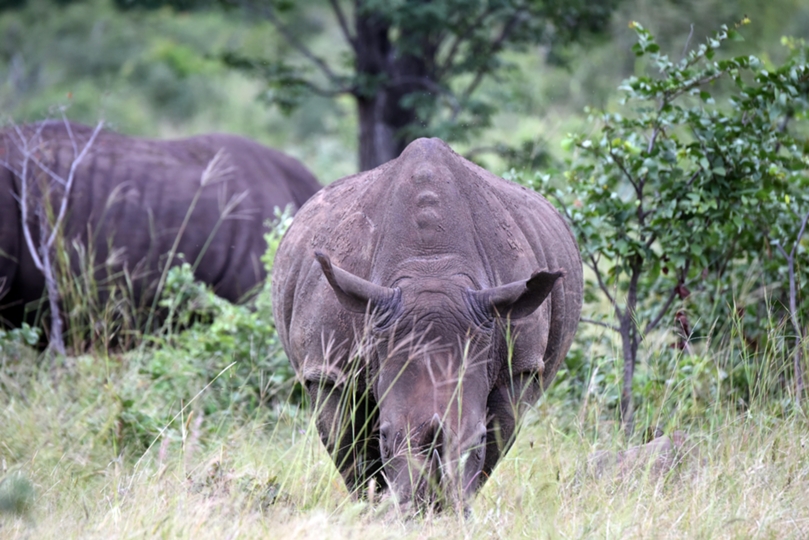
The knowledgeable guide also points out whatever else happens to cross our path. One very exciting sighting you may have on this walk is to watch and hear a Flappet Lark. If you have only ever heard it on recordings it may amaze you how small it actually is. Energetic wing clapping partly replaces song in this lark, hence the name. The high volume and the aerial displays that go with it are very impressive. It is hard to believe that such a little bird can make such a noise with its wings. Nature is amazing!
There are a lot of activities available in Livingstone and most people don’t stay long enough. It is recommended to spend at least three nights to give you two full days in the area. Some of the other activities include, but are not limited to:
· Sunset and river cruises
· Nostalgic train rides to the bridge with dinner
· Microlight flights over the falls
· Day trips to Chobe National Park in Botswana
· White water rafting
· Fishing
· Hydrospeed surfing
· Canoeing and kayaking
· Brunch, lunch or high tea on Livingstone Island
· Horse riding
· Bungee jumping
· Swinging from the railway bridge
· Visiting Victoria Falls National Park on the Zimbabwe side
· Trying the slide from Zambia to Zimbabwe
The falls are spectacular to see any time of the year. The time of year you wish to visit may vary depending on your main objectives. If you’re keen to see both sides of the falls and take a dip in the Devil’s Cataract, you’ll want to come at the end of the dry season, when water levels are at their lowest: July and August.
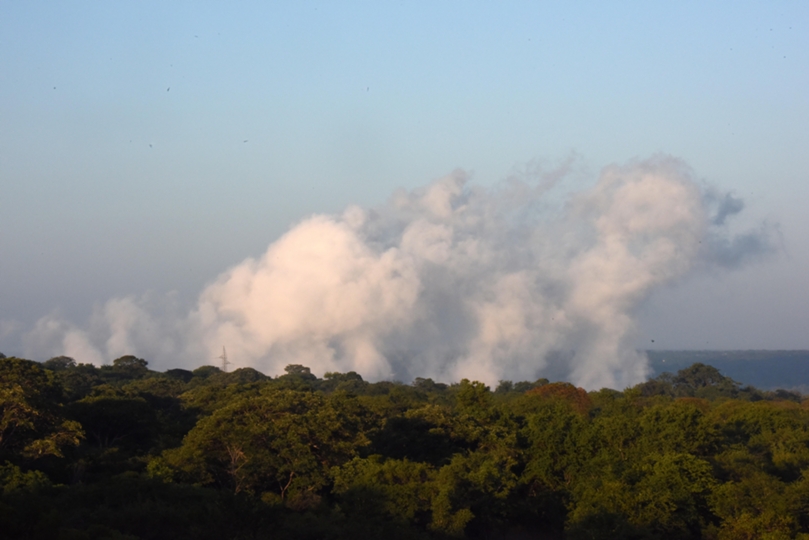
The falls, particularly on the Zambian side, really dry up. To see some water flowing you will have to visit the Zimbabwean side as well, because the main channel of the river is over there and keeps flowing throughout the year. For birders, the best time of year to visit the falls is during the rainy season, between November and March. During this time, resident species are in breeding plumage and the intra-African and Palaearctic migrants are around. Whatever time of year you decide to visit, be sure to allow enough time to explore the area on both sides!
Has been on: 20 safaris
Ruth loves being in the wilderness away from the hustle and bustle of cities and working as a Commercial Manager for African Parks was a welcome opportunity for her.
© Your African Safari Ltd, All rights reserved.
Your African Safari is a safari-planning and safari review site. It was created to help support a healthy African wildlife population. All reviews are vetted before being approved and only ethical tours are published
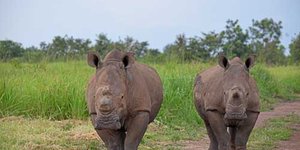
Garamba National Park—an anchor of hope in the Democratic Republic of Congo
Published on January 09 2025
By: R.W.
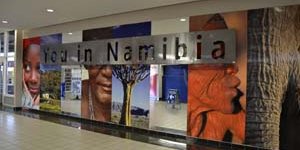
Namibia imposes new visa requirements
Published on July 25 2024
By: yourafricansafari.com

Do I really need travel insurance or travel protection for my safari?
Published on July 30 2024
By: yourafricansafari.com